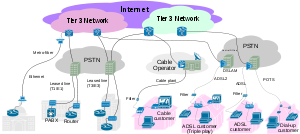
The Worldwide Struggle for Internet Freedom
Sign the Global Save the Internet Petition– IT
China operates the world’s most elaborate and opaque system of Internet censorship. But Congress, under pressure to take action against the theft of intellectual property, is considering misguided legislation that would strengthen China’s Great Firewall and even bring major features of it to America.
The legislation — the Protect IP Act, which has been introduced in the Senate, and a House version known as the Stop Online Piracy Act — have an impressive array of well-financed backers, including the United States Chamber of Commerce, the Motion Picture Association of America, the American Federation of Musicians, the Directors Guild of America, the International Brotherhood of Teamsters and the Screen Actors Guild. The bills aim not to censor political or religious speech as China does, but to protect American intellectual property. Alarm at the infringement of creative works through the Internet is justifiable. The solutions offered by the legislation, however, threaten to inflict collateral damage on democratic discourse and dissent both at home and around the world.
The bills would empower the attorney general to create a blacklist of sites to be blocked by Internet service providers, search engines, payment providers and advertising networks, all without a court hearing or a trial. The House version goes further, allowing private companies to sue service providers for even briefly and unknowingly hosting content that infringes on copyright — a sharp change from current law, which protects the service providers from civil liability if they remove the problematic content immediately upon notification. The intention is not the same as China’s Great Firewall, a nationwide system of Web censorship, but the practical effect could be similar.
Abuses under existing American law serve as troubling predictors for the kinds of abuse by private actors that the House bill would make possible. Take, for example, the cease-and-desist letters that Diebold, a maker of voting machines, sent in 2003, demanding that Internet service providers shut down Web sites that had published internal company e-mails about problems with the company’s voting machines. The letter cited copyright violations, and most of the service providers took down the content without question, despite the strong case to be made that the material was speech protected under the First Amendment.
The House bill would also emulate China’s system of corporate “self-discipline,” making companies liable for users’ actions. The burden would be on the Web site operator to prove that the site was not being used for copyright infringement. The effect on user-generated sites like YouTube would be chilling.
YouTube, Twitter and Facebook have played an important role in political movements from Tahrir Square to Zuccotti Park. At present, social networking services are protected by a “safe harbor” provision of the Digital Millennium Copyright Act, which grants Web sites immunity from prosecution as long as they act in good faith to take down infringing content as soon as rights-holders point it out to them. The House bill would destroy that immunity, putting the onus on YouTube to vet videos in advance or risk legal action. It would put Twitter in a similar position to that of its Chinese cousin, Weibo, which reportedly employs around 1,000 people to monitor and censor user content and keep the company in good standing with authorities.
Compliance with the Stop Online Piracy Act would require huge overhead spending by Internet companies for staff and technologies dedicated to monitoring users and censoring any infringing material from being posted or transmitted. This in turn would create daunting financial burdens and legal risks for start-up companies, making it much harder for brilliant young entrepreneurs with limited resources to create small and innovative Internet companies that empower citizens and change the world.
Read more . . .
Bookmark this page for “internet freedom” and check back regularly as these articles update on a very frequent basis. The view is set to “news”. Try clicking on “video” and “2” for more articles.







